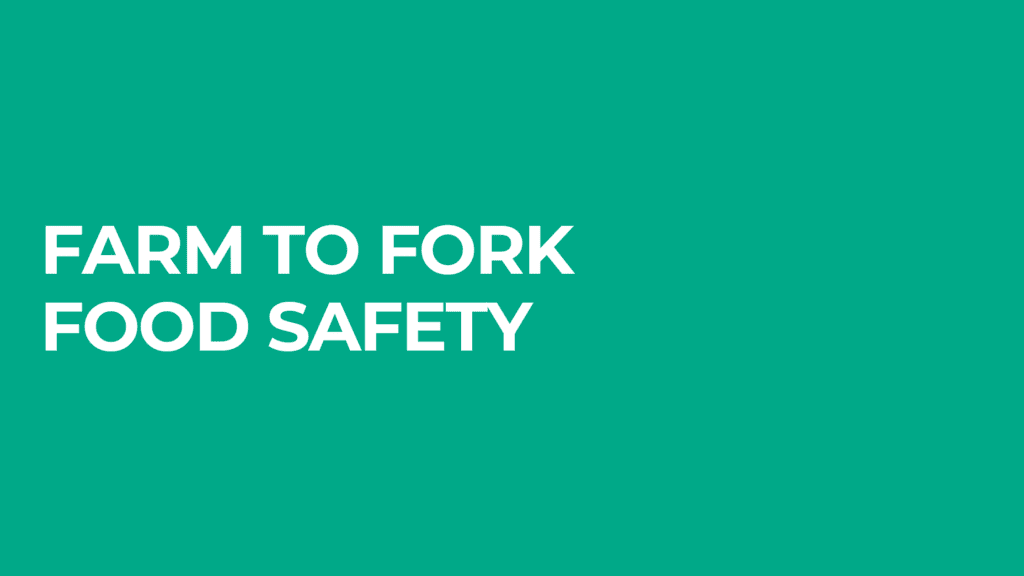BRC Consultant: Your Guide to Quality and Safety in Food Industry
As a business owner in the food industry, ensuring the safety and quality of your products is essential. This is where BRC consultants come in. In this article, we will discuss what BRC consultants do, the benefits of hiring them, and how to choose the right consultant for your business.
What is BRC certification?
British Retail Consortium (BRC) certification is a globally recognized standard for food safety management. It was created by the British Retail Consortium to ensure the safety and quality of food products throughout the supply chain. BRC certification covers a wide range of requirements, including HACCP (Hazard Analysis and Critical Control Points), food safety management systems, and product quality standards.
Who are BRC consultants?
BRC consultants are professionals who specialize in BRC certification and food safety management. They have extensive knowledge and experience in the food industry, and they work with businesses to ensure compliance with BRC standards. BRC consultants can provide a range of services, including gap analysis, implementation, and training.
What do BRC consultants do?
BRC consultants work with businesses to ensure compliance with BRC standards. They provide a range of services, including:
Gap Analysis
A gap analysis is an assessment of your current processes and systems in relation to BRC standards. BRC consultants can identify areas where your business is not meeting the standards and provide recommendations for improvement.
Implementation
BRC consultants can help you implement the changes needed to meet BRC standards. This can include updating processes, developing new systems, and providing training to your staff.
Training
BRC consultants can provide training to your staff on BRC standards and food safety management. This can include classroom training, on-site training, and online trainin
Benefits of hiring a BRC consultant
Hiring a BRC consultant has many benefits, including:
Expertise
BRC consultants have extensive knowledge and experience in the food industry and BRC certification. They can provide valuable insights and guidance to help your business meet BRC standards.
Efficiency
BRC consultants can help you save time and resources by streamlining processes and systems to meet BRC standards.
Risk Management
BRC consultants can help you identify and manage risks to your business, including product recalls, contamination, and legal issues.
Competitive Advantage
BRC certification is becoming increasingly important in the food industry. By hiring a BRC consultant, you can gain a competitive advantage by ensuring the safety and quality of your products.
BRC Certification: The Ultimate Guide for Businesses
BRC certification is a globally recognized standard for food safety management systems. It is essential for businesses in the food industry to ensure the quality and safety of their products. In this article, we will discuss everything you need to know about BRC certification, from what it is and why it's important to how to obtain it and maintain it.
1. What is BRC Certification?
BRC stands for British Retail Consortium, which is a trade association that represents retailers in the UK. BRC Certification is a set of standards and requirements for food safety management systems that are used to ensure the quality and safety of food products. It was first introduced in 1998 and has since become a globally recognized standard for food safety management systems.
2. Why is BRC Certification important?
BRC Certification is important for several reasons. First and foremost, it helps businesses in the food industry ensure that their products are safe for consumption. This is essential for protecting the health and well-being of consumers. Additionally, BRC Certification can help businesses improve their operations and increase their competitiveness. By following the standards and requirements of BRC Certification, businesses can reduce waste, increase efficiency, and improve their overall performance.
3. Types of BRC Certification
There are four main types of BRC Certification:
3.1 BRC Global Standard for Food Safety
This is the most widely recognized and utilized BRC standard. It covers all aspects of food safety management, from hazard analysis and risk assessment to control measures and corrective actions.
3.2 BRC Global Standard for Storage and Distribution
This standard is designed for businesses that store and distribute food products. It includes requirements for temperature control, traceability, and stock rotation, among other things.
3.3 BRC Global Standard for Packaging and Packaging Materials
This standard is intended for businesses that produce packaging and packaging materials for food products. It covers issues such as hygiene, cleanliness, and contamination prevention.
3.4 BRC Global Standard for Consumer Products
This standard is for businesses that produce non-food consumer products, such as cosmetics and household cleaning products. It includes requirements for product safety, quality, and legality.
4. How to Obtain BRC Certification
Obtaining BRC Certification requires several steps:
4.1 Pre-assessment
Before applying for BRC Certification, businesses should conduct a pre-assessment to determine their readiness. This may involve reviewing their current food safety management system and identifying areas for improvement.
4.2 Application
Once a business has determined that it is ready for BRC Certification, it can apply to a certification body. The application process typically involves providing information about the business and its operations.
4.3 Audit
After the application has been approved, the certification body will conduct an audit of the business's food safety management system. This involves reviewing documents, conducting interviews, and observing
How to select brc consultant
When it comes to making the critical decision of choosing the perfect BRC consultant, you'll want to ensure that your BRC certification journey is nothing short of a triumph. To achieve this, ponder over the following key aspects:
Expertise
Opt for a consultant who boasts an extensive background in BRC certification and possesses a profound understanding of food safety management.
Reputation
Evaluate the consultant's standing in the industry by perusing through reviews and testimonials from their satisfied clientele. A sterling reputation is a testament to their excellence.
Availability
Make a wise choice by picking a consultant who can dedicate regular, quality time to collaborate with your business. Accessibility is paramount.
Affordability
Take into account the consultant's service fees and ensure they align harmoniously with your budget. In this regard, it's worth noting that Greendot Management Solutions stands out as a top-notch choice, delivering exceptional value and expertise in BRC certification.
FAQ's:
- What is BRC certification, and why is it important?
- BRC certification is a globally recognized standard for food safety management. It is important for businesses in the food industry because it helps to ensure the safety and quality of their products.
- What services do BRC consultants provide?
- BRC consultants provide a range of services, including gap analysis, implementation, and training to help businesses meet BRC standards.
- How do I choose the right BRC consultant for my business?
- When choosing a BRC consultant, consider their experience, reputation, availability, and cost to ensure that they are a good fit for your business.
- How long does it take to become BRC certified?
- The time it takes to become BRC certified can vary depending on the size and complexity of your business. It typically takes several months to complete the certification process.
- Is BRC certification mandatory for businesses in the food industry?
- BRC certification is not mandatory, but it is becoming increasingly important for businesses in the food industry to obtain certification to ensure the safety and quality of their products and gain a competitive advantage.
- INDUSTRY 5.0
- 5S: is it just Housekeeping?
- AI vs HUMAN
- Industry 4.0
- Takt Time: Enhancing Efficiency in Manufacturing and Beyond


